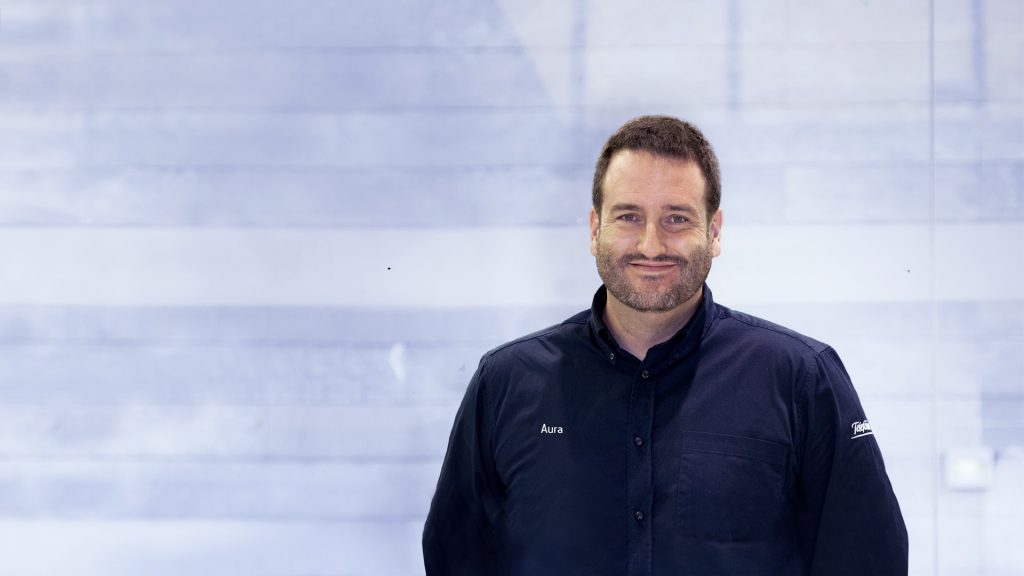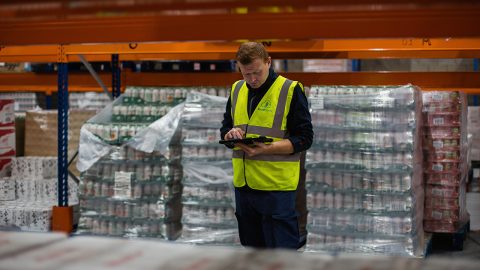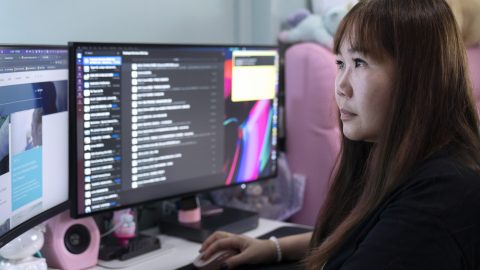Aura, Telefónica’s AI, learns the language of people to transform customer engagement
With over 350 million customers in 17 countries, Telefónica is one of the largest telecommunications companies in the world. But the Spanish-based organization wants to do more than connect people with mobile, landline, internet and pay TV services. It wants to make digital life easier for customers.
Founded in 1924, Telefónica has transformed into a modern, data-driven company in recent years, with major investments in infrastructure and technology. The upgrades enabled the company to launch Aura, an artificial intelligence-powered digital assistant that “learns the language of people so that they don’t have to learn the language of machines,” says Telefónica. It is available in Spain, Brazil, the United Kingdom, Germany, Argentina and Chile through mobile apps, webs and third-party channels including Facebook Messenger and Google Assistant.
The company will soon launch a smart device called Movistar Home that integrates Aura’s capabilities. With the rollout on the horizon, we chatted with Antonio Guzmán, director of innovation at Telefónica Aura, on how AI is revolutionizing customer engagement.
TRANSFORM: Why develop Aura?
GUZMÁN: Aura is an AI-powered digital assistant aimed to create a new customer relationship based on trust. Aura will transform the way customers interact with Telefónica and manage their digital life with the company.
TRANSFORM: What is the vision for Aura?
GUZMÁN: Aura offers our customers a homogeneous user experience through different channels and is conceived to let our customers talk to technology in real time and get things done, making it really simple for them. Aura is proactive and applies cognitive capabilities with machine learning algorithms to provide contextual insights and customized recommendations. The capabilities let our customers interact in a more natural way to maximize their digital life experience with Telefónica.
TRANSFORM: How are Aura and AI part of the overall digital transformation of Telefónica, a 94-year-old company?
GUZMÁN: It is the natural consequence of the digital transformation of Telefónica, starting with the end-to-end digitalization of our networks, systems and services, through the creation of big data platforms. We also created a new front end that brings all the benefits – immediacy, personalization, context and computing power – to the customer.
TRANSFORM: How do you see Aura enhancing the lives of your customers?
GUZMÁN: You can interact with Aura by talking or texting in a natural way to make things happen. Aura will understand and answer you with the best possible response, and transform personal data into customized answers and experiences, like tailored tariffs or new data-enabled services. And it gives customers full transparency and control of their data.
Aura can provide quick generic answers to common problems, by integrating Telefónica’s “Operating Businesses” knowledge bases, which creates a lot of efficiencies. It is also a multi-channel platform and a one-stop shop for the customer relationship, which means our customers can talk to Aura using the channel they like most, whether it’s a mobile app, web, Facebook Messenger or Google Assistant.
TRANSFORM: What are some of the most popular things that your customers ask Aura to do?
GUZMÁN: Customers can ask Aura, “Check my bill,” or get information about products and services by saying, “List my bundle.” Aura can also help customers know their current data usage, search TV content and make recommendations for what to watch based on their preferences.
TRANSFORM: How do Aura and AI help your employees and the company as a whole?
GUZMÁN: There are three main ways that AI can benefit Telefónica. Automation can reduce costs, by driving customer-service traffic to an automated interface. This also frees up critical employee time to focus on more intensive tasks that require human intervention.
The technology can increase customer satisfaction, by offering a real-time solution using natural language and giving them more control of their data and privacy. AI can also increase revenue stream with data monetization, by applying machine learning algorithms to enable employees to create customized, cross-selling offers.
TRANSFORM: When will Movistar Home be available? How do you see the device enhancing the lives of your customers?
GUZMÁN: Movistar Home will be available in October. It is what we call “Aura by design.” Both hardware and software have been designed to make Aura the core of the device to provide a new kind of interaction with Telefónica services at home, just by talking to technology.
Equipped with a second screen, customers will be able to make voice and video calls that can be projected on the television. It will also manage the connectivity of the router and will be the voice control for Movistar+ TV, offering a whole new entertainment experience.
TRANSFORM: How has Microsoft AI helped you customize Aura for your customers?
GUZMÁN: We launched in six countries with four base languages, including Spanish. But Spanish in Argentina, Spain and Chile is not the same. We leveraged Azure Cognitive Services, including Language Understanding – a service that applies machine learning to natural language – to train Aura with the right accents and utterances for each country and culture.
Learn more about Telefónica at Microsoft AI Stories and Microsoft Customer Stories.
Top photo: Antonio Guzmán, director of innovation at Telefónica Aura. (Photo courtesy of Telefónica)








